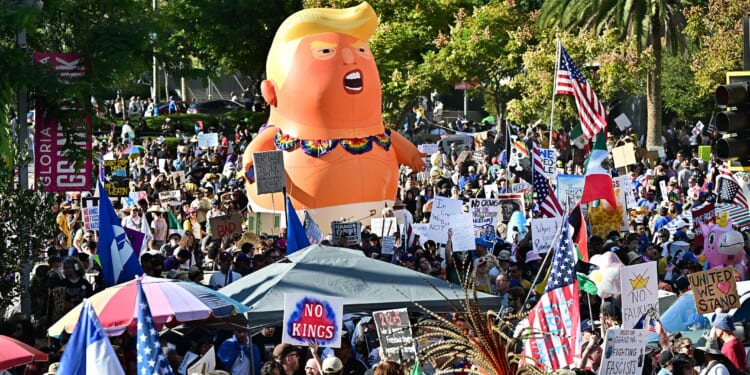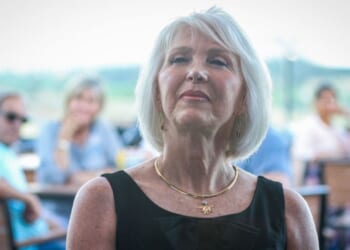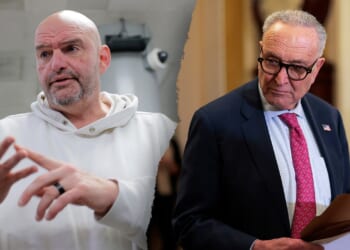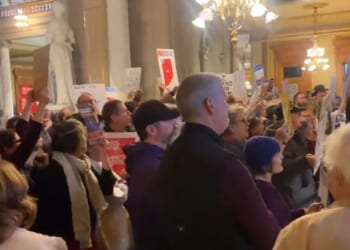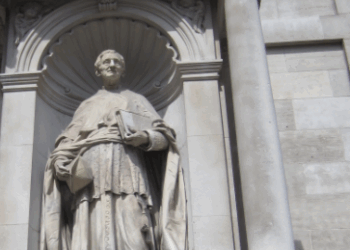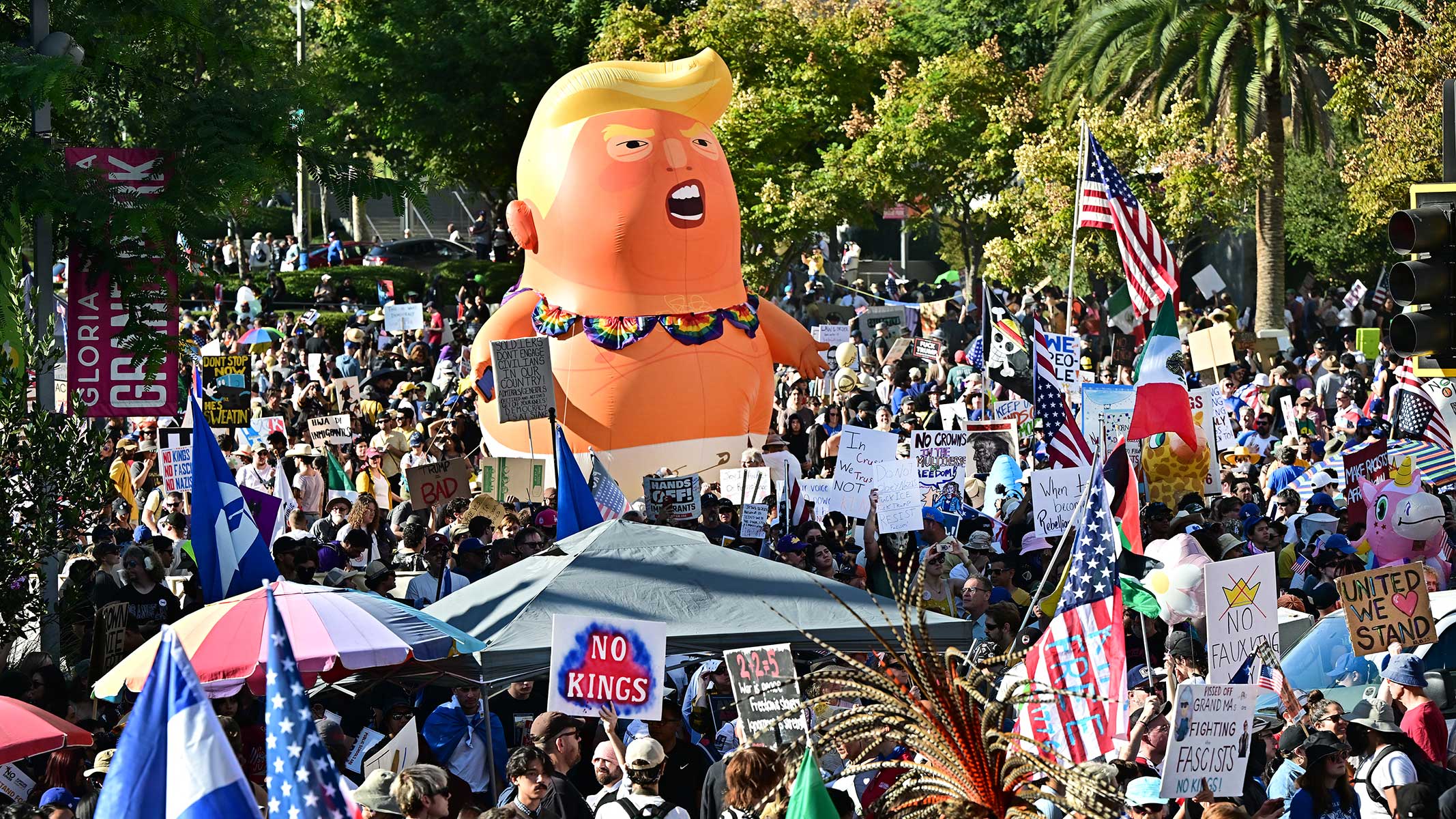
Daniel Di Martino, Tal Fortgang, and Rafael Mangual explore the generational divides in activism and what fuels people to mobilize. They share personal stories of political awakening, reflect on how social issues have shaped their worldviews, and question the coherence and direction of contemporary protest movements. It’s a candid conversation about governance, resistance, and American attitudes toward power.
Finally, a reason to check your email.
Sign up for our free newsletter today.
Audio Transcript
Rafael Mangual: Hello and welcome to another episode of the City Journal Podcast. My name is Ralph Mangual. I will be your host for the day, and I am joined by my brilliant and well-fit Manhattan Institute colleagues, Tal Fortgang and Daniel Di Martino. Welcome to the show, boys.
Tal Fortgang: Thanks for having us.
Daniel Di Martino: First time in person for me.
Rafael Mangual: I didn’t know that.
Tal Fortgang: Yeah.
Rafael Mangual: Well, it’s nice to not see you guys in two dimensions and be in the same room. So this weekend had some pretty interesting news. We had the No Kings protest, what people are calling the largest protest in modern history, which, you know, interesting, I guess. But it got me thinking just about, you know, protest culture and, you know, what the kind of grievances were. And I’m just looking at, you know, photos and coverage and the signs and some of the interviews. And it’s like, seems like the main issues that people were upset about were the war in Gaza, the ICE immigration raids, the lawfare allegations, I’m thinking here of the cases against James Comey and Letitia James and John Bolton. Of course, these people were not very concerned with the lawfare against Donald Trump and his allies. It seemed like trans activism was one of the big kind of issues and the use of the National Guard being deployed to cities to keep order. it just got me thinking because one of the things that a lot of people have been talking about with this protest is that you didn’t see a ton of young people there. It seemed like the median age was like AARP membership-eligible. And it just made me sort of think back about when I was in that peak protest age range. I was never a protest guy. I am sad to say that I’ve never been to a single protest. But a lot of people in my circles back when I was in college were very into that. And I just wanted to start by asking you guys, I mean, how would you have reacted to some of these things, say, know, 10, 15 years ago when you were young bucks?
Tal Fortgang: Well, the underlying political scandals here, such as they are, I mean, scandal might be too strong a word, events, you know, things going on in the world, an election that doesn’t go your way. I never thought of that as a particularly great injustice.
You know, that seemed, everything seems to be like within the realm of normal politics. I think when I was in college and a lot of my friends were out protesting a lot, maybe you had a similar experience, I would think, you know, am I living through a civil rights revolution now? Am I, am I not joining in with the Martin Luther King, Jr. of my era? No, there’s no great injustice. There’s just, you know, there are things I’m not so happy about. And when it comes to regular politics, you move the ball through arguments and persuasion, and protest has always seemed like a kind of a shortcut in the best of times. Show the world our strength in numbers, how many of us there are. When you don’t have access to the democratic process, like the civil rights protesters did not because of Jim Crow, that’s when you have to show your majoritarian status by other means, but otherwise, it just never really appealed to me.
Daniel Di Martino: Have you ever been to a protest?
Tal Fortgang: I went to, I wrote about this a little bit actually. I went to a demonstration shortly after October 7th. I was living in Washington, DC and there was kind of a pro-Israel rally where the politicians got up and said their nice things and the people waved their American flags and their Israeli flags. And I was like, okay, you know, I kind of, I basically agree with you on the substance of all of this, but I still do not understand why we’re doing this. I don’t get it. It doesn’t speak to me. And that’s the only protest I’ve ever been to.
Daniel Di Martino: I think it’s good that you went, in part because it’s a counter protest because there were protests in favor of Hamas, so you want to kind of show numbers that the whole country, you don’t want to create the perception that the other view is a majoritarian view. I have been to many protests when I was a teenager because I lived in Venezuela, of course. So it’s like no access to the democratic process. So we, of course, protested against the regime. So I absolutely agree. In the U.S., though, I think the closest I’ve been to protest is like prayers in front of abortion clinics. That’s like my…
Tal Fortgang: You get arrested for that? No. It was in Indiana.
Rafael Mangual: You do in the U.K.
Daniel Di Martino: Thank God it was in Indiana and in Kentucky, but especially in Indiana. Mike Pence was governor, so, you know, freedom. Thank God.
Rafael Mangual: When I was in college, a lot of my friends were protesting it seemed like every other week there was a new cause. I mean I remember one of my first days on campus at Baruch College here in the City University in New York and a bunch of the you know other Latino kids that I hung out with were protesting in the main quad and the beef was that they were insisting that the administration changed the word Hispanic throughout all of the official documents and the websites of the schools and used the word Latino instead. And I just remember looking at it… Yeah, this is pre-“Latinx.” I don’t think “Latinx” caught on even with that crowd.
Daniel Di Martino: People took time out of their day to do that.
Rafael Mangual: Well, this was exactly my reaction, which was like, I don’t understand what you guys are upset about. You know, life is really good. We’re all in college. Many of you are going to kind of go on to graduate school and enter the economic elite in some form or fashion. What is it that you don’t have, that you feel this sense of outrage for?
Daniel Di Martino: It’s virtue signaling. It’s what Rob Henderson talks about. It is part of the expression, which is why we see it among young people very often, but what I think is different with the No Kings is what you mentioned, is old people. So I do wonder what’s the difference there. Because for them, I doubt it is to gain social points.
Tal Fortgang: Well, there are some elements of the No Kings, substantive elements of the No Kings protests that I think have some evidentiary quality to them, which is that all of the materials that get passed out are like, we’re patriotic, we’re constitutional, wave your American flags, even if you don’t really believe in that stuff so much, that’s the image we’re looking to project. And I think that that appeals to a kind of maybe older, whiter, more boomer type protester.
Whereas the younger people who have been rabble-rousing in various demonstrations on college campuses and city streets for the last few years especially, they’re not interested in that stuff at all, right? They’re outflanking the No Kings people by a good margin.
Rafael Mangual: No, I think that’s right. I mean, when I think about just protest culture in general, I can never see myself in it. And the thing that I always picked up on was the incongruity between the rage of the people participating and the quality of their lives, right? I mean, like life is good. Right? Generally speaking, if you are living in the United States of America, even if you’re poor, life is good. I just think about like the first time that I went with my family to the Dominican Republic and was actually exposed to real abject poverty and corruption. And, you know, it broke my heart even, you know, in my earliest memories of that country were, you know, of tears, right, associated with just witnessing that level of abject poverty. Maybe that’s why I kind of appreciated where I was able to live and grow up so much. But yeah, I mean, there’s just such an incongruity, which I think is kind of at the root of why I always felt like an outsider in my social circles, right? I mean, like, born in New York City, raised in Brooklyn, I should, you know, child of immigrant parents, right? Like, I should be lefty.
Daniel Di Martino: Well, no, that’s the thing. The incongruity is the lefties who are the children of immigrants or being people who are doing well protesting against the country that’s given the opportunity. You should be like, the way you think should be the normal way.
Rafael Mangual: It should be, but it wasn’t. It wasn’t in my social circles, right? And it just gets me thinking like, I mean, maybe there’s something strange about me, all right? And maybe there’s something strange about you guys, right? Because I feel like all of us have kind of ended up going down this path. Here we are, you know, working for the Manhattan Institute, you know, writing about conservative ideas in a city where we are very much in the minority, right? And so, you know, for me, it was just, there were a couple of issues that really pushed me outside of that, you know, kind of mainstream culture. You know, Tal, I remember your freshman year at Princeton, not because we knew each other back then, but because you actually made news as an 18-year-old. And I just, wonder if you could just talk a little bit about like how you ended up on this track.
Tal Fortgang: Yeah, well, the piece that you’re alluding to was something I wrote for the conservative magazine at Princeton when I was a freshman.
Rafael Mangual: What was the title again?
Tal Fortgang: I didn’t come up with the title, so let’s…
Daniel Di Martino: But did you like it?
Tal Fortgang: Did I like it? It worked. had a viral effect. Why I’ll Never Apologize for My White Male Privilege. When I did this, language of apology was actually in the body of the piece. Like I actually did write about like, I won’t apologize. I meant it in like the Socratic sense of, like, I don’t need to explain why I have what I have. I don’t owe anyone an explanation for like…
Daniel Di Martino: Heather McDonald got into your mind and possessed the writing.
Tal Fortgang: I mean, she’s on my… I was like reading Heather McDonald at the time. Sometimes I have to pinch myself that we get to call her colleague. But yeah, I wrote a piece about the notion of privilege, which we can get into how much the term has shifted in its meaning and its implications over the last decade plus. But that was a buzzword at the time, people talking about white privilege, male privilege, how you’re born on third base if you have certain identity markers and I said, look, what’s beneath the surface here? I’m not a child of immigrants, but I am a grandchild of Holocaust survivors. And my grandparents came here with absolutely nothing and worked and, you know, the same boring, classic immigrant formula, you know, get an education, work hard, follow the rules, try to be a good person, help others, and what goes around will come around and sent my dad to college and business school. And he was able to move out to the suburbs and raise a family. And we’ve been on an upward trajectory ever since.
And I think probably what distinguished me from my classmates who felt resentment towards this notion that some people had gotten ahead, thanks in large part to people other than themselves, thanks to the sacrifices of others, is that I view that as something to be grateful for. Right? Like, sure. I mean, life is certainly not perfectly fair, and there’s a large measure of luck involved in making it here and anywhere. But I just look back at all those people who sacrificed for me, and I say, thank you. I’m so glad you put me first, even though you did not even, you didn’t know me. I was barely a concept. I think a lot of…
Daniel Di Martino: How did those stories of your grandparents, like, did you get to talk to them a lot about the Holocaust and all that?
Tal Fortgang: No, my grandfather died 13 years before I was born and my grandmother died when I was four.
Daniel Di Martino: Oh, I see.
Tal Fortgang: So I really have very, I’ve no memories of my grandfather, very few of my grandmother. My grandmother did write her story down in a kind of prose that’s striking and just how matter of fact it is when she talks about her experience. But it was certainly transmitted through my parents and through the community to which I belonged. You would hear Holocaust survivors speak on Holocaust Remembrance Day and sometimes you’d just find yourself at dinner with my friends’ grandparents and just think about what a blessing it is that I’m here in America, my life is so easy, we have it so good. That’s not to say it’s perfect, of course, but fundamentally, when I wake up every morning, the first word out of my mouth is thank you.
Rafael Mangual: Thank you, right, yeah. I had a very similar experience, right? I mean, the sort of concept of white privilege was very pronounced when I was in college as well, and I rejected it for a couple of reasons. One of them was just I felt automatically like it was requiring me to admit some kind of inferiority, which I just could not abide by. Maybe I’m just way too full of myself, but the idea that I needed special assistance was just anathema to me. I could not get behind it, and so from a very, very early age, I kind of found myself pushing back on the sort of dominant narratives about race.
And you one of the issues where that narrative was most pronounced, more than, you know, likely any other issue, was the issue of policing. And that was actually sort of the start of my path here. I actually remember the moment. It was my first year of sociology class we had a guest speaker. We’d have a guest speaker once a week. We had two sessions a week. And we they would talk for half an hour and then we would have a class discussion that you know related to talk to the reading. And one of the guest speakers was a guy who had just gotten out of prison, and he came and he gave basically a diatribe against the NYPD and the criminal justice system and how it was racist. At the time, when I was in high school, which was not long before I heard this talk, I’d hung out with a lot of kids who ended up going to jail, going to prison. So that world was somewhat familiar to me. And I just remember looking around at my classmates, all of whom were captivated and nodding their heads. And you could see the anger forming on their face. And I just remember thinking like, this guy’s full of it, you know, right? Like, we all agree?
Daniel Di Martino: Did you ask him why he went to prison?
Tal Fortgang: No, we didn’t get to ask the speaker any questions.
Daniel Di Martino: It seems like the most important question is why he went to prison.
Rafael Mangual: He did tell us. For dealing crack. Most of his ire was aimed at the Rockefeller drug laws, which are the mandatory minimums here in New York.
Tal Fortgang: And how long did he spend in prison?
Rafael Mangual: I think he said something like 18 years or something like that. You know, significant amount of time.
Tal Fortgang: Was the message fundamentally like this could easily be you? It’s just like one mistake one slip…
Daniel Di Martino: To become a professional crack dealer?
Rafael Mangual: Right, yeah.
Daniel Di Martino: Clearly you can just make that mistake.
Rafael Mangual: I mean it was a lot of crack. You don’t get 18 years for, you know, a couple of rocks, right? I mean, so this guy was obviously involved in a significant operation. But no, the basic thing was like, well, you know, opportunities were denied to me and I was clearly smart and had other doors been open. I could have gone down this road. I just remember thinking nonsense, right? Every criminal that I knew in my life had made a choice, a very conscious choice to do that. And that was kind of the start, but the thing that really kind of set me off down this track was that at the time, I didn’t have the vocabulary with which to push back on any of these ideas. I know it’s strange for some of the people listening to this, but I was not a nerd most of my life. I was a dumb jock, did not study a lot. This was actually the issue that sent me down an intellectual rabbit hole. That was how I discovered the work of the Manhattan Institute and of Heather McDonald and started subscribing to City Journal. That was kind of the path. I had some kind of conservative inklings before that, but not a ton.
Sometimes I read some of these news stories that are coming out and just think about how would I have reacted back then. It’s just a nice reminder that for as long as I can remember, I’ve kind of been going against the grain and thankfully have been comfortable with it. But I was actually thinking of you, Daniel, because there was another news story from last week, which was the announcement of the Nobel Peace Prize, which went to, I want to make sure I her name right, Maria Corina Machado, who is an activist in Venezuela pushing back on the regime there. You mentioned being part of protests, pushing back on the regime when you were a kid. And I’m just interested in your kind of origin story.
Daniel Di Martino: I met Maria Corina when I was 17 years old. Yeah, I know her. Maria Corina is a great woman. The reason I was attracted to her ideas was that she was the only person, even within the opposition, who was openly very pro-free market and anti-socialist. And I was always, since you know, I was kind of like the opposite of what you were saying, I was a nerd, and you know… Yeah, it’s okay. You know, I did Model United Nations.
Rafael Mangual: I wish I was a nerd. I screwed up.
Daniel Di Martino: No, you became a nerd eventually.
Rafael Mangual: Eventually. I found my way.
Daniel Di Martino: So I was reading Milton Friedman since I was 12. I was watching Ronald Reagan videos. You know, I was this kid in Venezuela who thought, you know, these people are going to starve to death because of socialism. So let’s get the hell out. And I was right. And people did get the heck out. So I met Maria Corina. She was back then not as popular as she is now. In fact, the rest of the opposition really disliked her because she was the only one who was not a lefty. And now obviously she was redeemed as being right because everybody else turned out to be corrupt and all these other things. And so she’s doing great, great work in in Venezuela, and I really hope that the regime falls I would encourage the audience to read my article that just got published today by the way. On Acton. With Acton. I think it’s Liberty… Religion & Liberty. Which is specifically about this Nobel Prize. I called it “The Nobel Prize Goes Against Socialism.” Like when did you ever hear of a Nobel Peace Prize going to somebody who is opposed to a socialist regime? It’s usually like lefty, cosmopolitan lefty who like did some humanitarian work or nothing at all.
Rafael Mangual: Right. No, no, I think that’s interesting. In fact, actually, if I had to characterize your come up with the headline it would be like the actual No Kings.
Daniel Di Martino: Did you the No Kings, the Democrats abroad, renamed it “No Tyrants” because they didn’t want to the monarchs. You know in the real country.
Tal Fortgang: Just the right number of kings.
Daniel Di Martino: Exactly. Some people can be king, others cannot, essentially what their argument is. But you know I always thought about economics and I was always for free market and then I started thinking about social issues when I came to America. You know, you guys both mentioned like the race issue and privilege being important for you. That was not important for me until I came to the U.S. And one of the first things they tried to make us do in student orientation was a walk of privilege.
Rafael Mangual: Wait, when did you come to the US?
Daniel Di Martino: 2016. I was 17 years old. I finished high school in Venezuela.
Rafael Mangual: Got it.
Daniel Di Martino: And so we did, I was 17 and they’re like, now if you are a man, take a step ahead. If you’re a woman, take a step back. And I’m like, wait, what is going on here? And I refuse to participate.
Rafael Mangual: Good for you.
Daniel Di Martino: And so that was my first exposition to those ideas. And I was already predisposed against it. I’m like, I already came to America. What are people talking about? People don’t have less opportunities because of their race or their sex. Yeah. People grow up with different opportunities. Some people are rich. Some people are poor. That’s the reality of life. Welcome to humanity, to Earth.
Rafael Mangual: Right. Yeah, it reminds me of a great line that Thomas Sowell wrote, and I’m going to butcher it. But inequality is the rule, not the the exception. Like, you know, we tend to talk about inequality as if it’s some, you know, corruption of the proper order, but the natural order actually is inequality, right? As he says, like, we’re all born naked and poor, and through the use of our own faculties, are able to build wealth and survive and join in community, and, you know, we should be seeking to figure out and mimic the behaviors that create wealth, as opposed to trying to redistribute the wealth that’s already been created. That always resonated with me as a kid.
Tal Fortgang: I took flack for the writing that I put out in…
Rafael Mangual: Yeah, what was that response like?
Tal Fortgang: It was crazy.
Daniel Di Martino: What year was this?
Tal Fortgang: This was in 2014. This was the spring.
Daniel Di Martino: Okay, you were getting into peak woke.
Tal Fortgang: Yeah, I think this was right at its initial height. You know, there was a second peak in 2020. Yeah, no, people were really not examining the stuff closely. There was just a bit of a mob mentality sweeping campuses and privilege. I think it’s kind of faded as a concept with good reason. But it was very, it was popular then. And people would say things like, you’re just lording the fact that your family made it over others. And you’re so blind to the ways in which you were assisted. And that stuff isn’t available to others. The way I looked at it was, like we, our natural condition, right, forget, forget Jewish history, all of human history is to be like poor and downtrodden and life is generally terrible. But like we cracked the code. It’s this combination of the rule of law and capitalism and like good bourgeois behaviors. I’m not trying to lord anything over anyone. I want to share this gift with you. That’s right. We did it. And you can do it too. I truly believe you can do it too.
So there’s some people who are fatalists who are like, Ralph, you know, is Dominican. They’ll just never, never have access to that. Right? That’s, that is not my approach. I, and I think statistically this is born out that Hispanics, other minorities.
Daniel Di Martino: I mean, look at Miami. Miami is the most foreign-born city in America. Majority foreign-born, mostly Cuban. I mean, what do you think Cuba would look like if it had the system of government of Florida? It would look like, honestly, like Miami. Like there’s really no difference.
Rafael Mangual: Now you said something just now that actually made me think about the No King’s protests and some of the coverage, which was that a lot of the people who were pushing back on you back then clearly hadn’t fully thought things through. And I don’t know if you guys have been watching some of the interview footage from people who have been on the ground at the No King’s protests over the weekend, just asking pretty basic questions about some of the concepts that people were protesting about.
Daniel Di Martino: I saw one clip.
Rafael Mangual: It was like one woman was asked about her sign about Citizens United, about overturning Citizens United. She couldn’t say a single thing about the Citizens United case. I mean just folded, you know, immediately. And it just, it gave me a little sense of relief that like actually a lot of this is just pure emotion. No one’s really actually thought a lot of this stuff through.
Daniel Di Martino: Okay, you have to hear this one. This one is really funny. Nick Shirley, this like journalist, independent, a young kid, he interviews this couple. I think they were boyfriend and girlfriend. And they had a sign about immigrants. Immigrants built America. And then he goes and asks the guy in front of his girl. Do you think illegal immigrants should be deported?
Rafael Mangual: I saw that. He says yes.
Daniel Di Martino: And then he says yes. And then she’s like, what? And then he’s like, I think I broke up a relationship. He had no idea. He had a common answer. Like, yes, actually, if they cross the border illegally, we should return them. And she was outraged. Like, no, nobody’s illegal. And she was white, and he wasn’t. Yeah, that’s right. That was the icing think he was like South Asian, and then she was white.
Rafael Mangual: This is the icing on the cake. The guy was like, yeah, obviously. No, no, it does give me a little bit of a sense of relief, right? That actually there are a lot of people who claim to be activists and who pose as activists but haven’t actually thought a lot of it through. Now, the sad part is that given the median age at the No Kings rally, you know, clearly they’re never going to get it. And that’s just one of the downsides of living in a society that’s structured the way that ours is, but I still wouldn’t change it for the world.
Tal Fortgang: I’d be more concerned about, again, the dog that didn’t bark at these rallies, the people who we know harbor similar tastes and attitudes, but were not there.
Daniel Di Martino: Also, we didn’t even notice there were mass protests. I didn’t notice.
Rafael Mangual: I live on Long Island now, so it’s nice and quiet.
Daniel Di Martino: Well, I didn’t notice and I thought, you know, people have a right, you know, if they’re not bothering others, let them do their thing. I mean, they’re happy saying “no kings” and whatever.
Tal Fortgang: What do we make of the seemingly concerted media effort to make this seem like some kind of epochal event? Right, like generational protest.
Rafael Mangual: Well, this is the second time it’s happened, right? I mean, so I don’t know that the first one really changed the world. I don’t think so. Didn’t keep Trump from getting elected.
Tal Fortgang: I think the best way to understand this is, you know, voter mobilization, maybe donor mobilization, just omni-cause…
Rafael Mangual: Well, I don’t know, it’ll make for some great photos that they can repurpose in, you know, campaign mailers and, you know, social media content, but outside of that, don’t really see…
Tal Fortgang: I just don’t know why anyone should care. This is not bringing to the forefront a political position or a package of political positions that we didn’t know existed before.
Daniel Di Martino: Well, and it’s also the anti-Trump. It’s like instead of being for something, the only thing they have been able to do since Trump got nominated is stop Trump. So No Kings is really about no Trump.
Rafael Mangual: For sure. Well, what’s also strange to me is that one of the chief complaints is this idea that Trump has been sort of consolidating executive power. When the left actually, if you know anything about the history of the law, the left is actually very famous for doing exactly that. I mean, just thinking about like the FDR court, which absolutely expanded the authority of the executive through everything from allowing more delegation by Congress to the executive to creating out of whole cloth these ideas of judicial deference to executive interpretations of statutes, you know, over-reading the Constitution to create all kinds of regulatory authority that gets exercised almost exclusively by the executive branch.
Daniel Di Martino: Donald Trump is able to use, right?
Rafael Mangual: I think, but rather than abusing it actually, I mean, you know, his Solicitor Generals have pushed back on things like Chevron deference, for example, which, you know, for the people who don’t know, right, this is a this is a legal concept where the courts have traditionally deferred to executive agency interpretations of congressional statutes that grant them rulemaking authority, even when the court’s job is to actually do the work of interpreting the statute, right? That’s why the judicial branch exists. And yet this is something that’s been defended by the left for years.
Daniel Di Martino: I’ll say if something great could come out of the Trump presidency is the left saying, actually, we need to limit presidential and executive authority.
Rafael Mangual: You think they’ll do that?
Daniel Di Martino: Well, I don’t know if you saw Elissa Slotkin, the Michigan senator. She’s now coming out in favor of a constitutional amendment to limit pardon power to a number of people or even eliminate it.
Rafael Mangual: Right.
Daniel Di Martino: I think that’s good. Joe Biden pardoned thousands of people. Mass pardons. It wasn’t as it was intended to be, which is I know this specific person and I want to give clemency or pardon to this specific person. He was everybody who committed this crime, you’re pardoned.
Tal Fortgang: Far be it from the Manhattan Institute to oppose a policy that would keep more people incarcerate.
Daniel Di Martino: Of course. I wanted, I wanted to keep more people. I mean these are people who are guilty of their crimes, right? We’re not talking about unjust incarceration.
Tal Fortgang: In all seriousness, I’m not sure that’s the part of executive power that I would target first.
Daniel Di Martino: It’s not. But I think it’s an indication. And I think they should also go ahead and say, hey, we want to limit the presidential power in regulation. We want to limit the presidential power in all these things. Let’s limit spending. Let’s do a constitutional amendment.
Rafael Mangual: I actually like the idea of the pardon.
Daniel Di Martino: Unlimited pardon?
Rafael Mangual: Yeah. And the main reason for that is that, you know, there.. It is not unlikely that there will be a regime one day that abuses its authority and imprisons its political opponents. We already saw hints of that with the lawfare engaged in against Donald Trump and his inner circle. I think the president should be able to retain that power, because to the extent that there’s a popular political movement that pushes back on an abusive regime, we’re basically adopting a rule that doesn’t allow us to correct the harms done by that regime in its fullest form.
Daniel Di Martino: Well, at least not by the president. It could be by Congress, but yeah.
Rafael Mangual: Yeah, but Congress wouldn’t be able to retroactively pardon everyone.
Daniel Di Martino: They could, passing a law.
Rafael Mangual: Yeah, maybe.
Daniel Di Martino: I mean, that was the first Step Act, essentially.
Rafael Mangual: Well, yeah, but the First Step Act kind of retroactively made people eligible for judicial review.
Daniel Di Martino: But I mean, they could just pass a law releasing that.
Rafael Mangual: Sure, yeah. I guess they’d have to do it by name, but I don’t see that happening.
Tal Fortgang: Let’s see when we get a bipartisan consensus on rolling back the substantive regulatory authority of the alphabet soup agencies.
Daniel Di Martino: The RAIN Act, I like the RAIN Act.
Rafael Mangual: The RAIN Act is great.
Daniel Di Martino: Yeah, to limit regulatory authority of important regulations. I mean, this is the kind of thing that could actually limit procedural authority.
Rafael Mangual: Well, people don’t actually know this, but when I first started at the Manhattan Institute, I came on as a legal policy person doing criminal justice reform work. Now, it was in the regulatory space, and my main issue was regulatory over-criminalization. And what people don’t know is that we actually have no idea how many criminal laws exist in America. I try to tell people this, like they don’t believe me. The ABA, in the early 90s, actually, the American Bar Association, actually tried to count how many crimes are on the books in the United States. They spent like a million dollars and spent a year on this project only to scrap it because they actually could not keep up with the number of new crimes being created. And then the worst part about it is, is that the vast majority of the new crimes being created are not voted on by Congress. This blows out of the states. Everyone has this sort of “I’m just a bill,” you know, idea of how the federal government is supposed to work, right? I’m dating myself now. But like the reality is, is that the way most crimes are created is that Congress will pass a broad bill granting some regulatory agencies authority. And then there’ll be like a regulatory catch all provision where they say any violation of any rule promulgated pursuant to this act is going to be punishable as a misdemeanor or as a felony. And then the alphabet soup agency in question starts making rules not realizing that every single rule that they make is technically a criminal offense if it’s violated. And that should change. We shouldn’t live in a country… You want to talk about no kings? How about we live in a country in which 98 percent give or take of the criminal law at the federal level, right? Like is not even voted on by Congress? That shouldn’t be the case. We live in a country in which we don’t even know how many criminal laws are on the books.
Daniel Di Martino: We want to put people in prison for murder, for theft, for rape, for all the actual crimes.
Tal Fortgang: For catching the wrong kind of fish.
Rafael Mangual: That’s right.
Daniel Di Martino: Exactly. Not for that.
Rafael Mangual: It wasn’t for catching the wrong kind of fish, it was for throwing it back. There’s Supreme Court case where it was based on a guy who was fishing and his boat was inspected by, was it the Coast Guard? Or one of these agencies that was looking at the catch. And they suspected that some of the fish that he caught were undersized, which is illegal, and he could get fined. So they made him go back to shore to weigh the fish and measure the fish. So, the allegation is that on the way back, he dumped some of the fish back into the ocean. And they charged him with a crime under, get this, the Sarbanes-Oxley Act, which was passed in the wake of the Enron scandal, to punish the shredding of documentary evidence. And they claimed that he had to… First off..
Daniel Di Martino: Also, they should have fined him. That should not be something where people are going to jail for.
Rafael Mangual: Yeah, he was convicted of a felony. And so the Supreme Court eventually overturned his conviction on somewhat dubious grounds.
Tal Fortgang: It’s a fun textualism text.
Rafael Mangual: Yeah. Well, I actually thought they got the textual analysis wrong because I would have decided the case on the word “destroy”. Like he didn’t destroy the fish. He actually just put them back in their home.
Daniel Di Martino: That’s clever. That’s kind of a clever way to say that.
Rafael Mangual: I don’t think that was, you know, I understand what…
Daniel Di Martino: He didn’t destroy the fish, but he did destroy the evidence.
Rafael Mangual: Well, he didn’t destroy the evidence. The evidence exists as far as…
Daniel Di Martino: He got rid of it.
Rafael Mangual: Right. Which is slightly different. But yeah, all that to say is that I’m not sure I ever really took these No Kings folks seriously. They seem to have quite a high degree of tolerance.
Tal Fortgang: You know, the things I don’t like about kings is the arbitrary authoritarian authority and the lack of accountability to the people. Regulators and bureaucrats and the federal government have both of those in very large proportions.
Daniel Di Martino: So wait a minute, I do like some kings. What do you mean? Like there are some countries for which not the United States, but there are some countries in which the monarchies work. Yeah. And it’s actually better for democracy. People forget Spain, Thailand. Those wouldn’t be democratic countries today if they weren’t monarchies.
Rafael Mangual: Interesting.
Daniel Di Martino: Like the king saved the monarchy, the democracy in Spain after Franco. In Thailand, I mean, how do you think they remain democratic and all that? It was because of the influence of the market. So, I mean, it’s a bad name in general.
Rafael Mangual: We’re still not going to have any kings here. Outside of the three gentlemen at this table.
Daniel Di Martino: And also, on the authoritarianism part…
Tal Fortgang: Three short kings.
Rafael Mangual: That’s right. Five, eights, and 12s.
Daniel Di Martino: Yeah, exactly. This is like an anti-short king protest. But no, the authoritarian parties also came from the left during the pandemic. People forget what the U.S. government, the state governments did to us in 2020 or in 2021.
Rafael Mangual: Own a business, shut it down. Right? No due process. Want to go outside? Nope. No due process. Want to be with your family? Nope. Be subject to arrest. I mean, there’s this very famous photo of a man coming in from surfing by himself in the ocean. And there are like three police officers waiting to arrest him. It’s like, you know, where were all the No Kings protesters then? Right? I mean, these were the ideas that were kind of in my head when I was coming up. It was like I just I cannot take you all seriously because you don’t actually have any real principles here and like you know, I think ultimately that’s, that’s probably the most…
Daniel Di Martino: By the way, these are the same people who would support doing in America what they’re doing in the U.K. with social media, where if you post something that they consider racist Facebook? The police are going to know. We are going to arrest you for a hate crime.
Rafael Mangual: Yeah, I watched a video of police in the U.K. arresting a woman because they alleged that she was praying silently. She was just standing.
Daniel Di Martino: I saw that one. No, she admitted it. She admitted it. I think it was good. I would have gone to prison for that one.
Rafael Mangual: She admitted that she was praying silently. Yes, exactly. Not only will we criminalize speech. We will criminalize thought, literally. Which is, you know, it’s just crazy.
So all that to say is like if you guys are out there at the No Kings protest, please like, have at it, do your little march, whatever, but be consistent, right? Like, you know, take the time to actually investigate the degree to which your government oversteps its bounds, understand that it happens on your side too, and maybe do something about it.
Daniel Di Martino: I respect consistency.
Rafael Mangual: Maybe then though, you know, it’ll, it’ll land better. So, all right. Well, thank you two kings for joining me for this great discussion. For those of you out there who are watching, please do like, comment, subscribe, ring the bell, do all the things. Thanks again to our panelists. Thank you to our producer, Isabella Redjai. And until next time, you have been watching the City Journal Podcast.
Photo by FREDERIC J. BROWN/AFP via Getty Images
Source link

